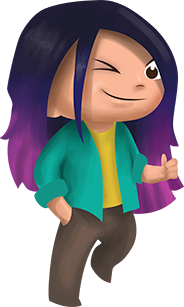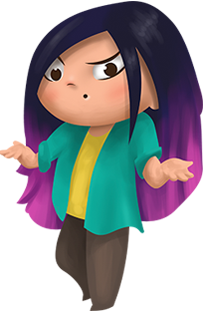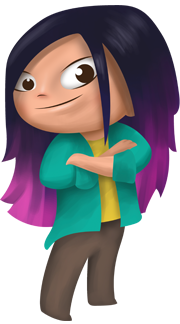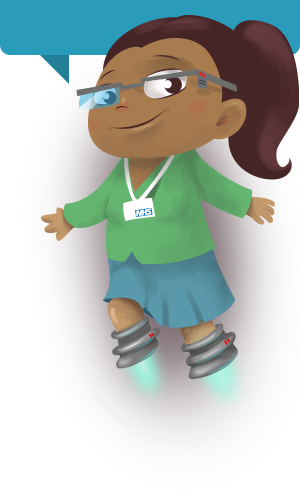

Asthma 
How common is asthma?
Asthma is very common, and one in 11 children are diagnosed with it. Asthma can start at any age (including babies), but is most common in school-age children.
We don’t know why one person gets asthma and another person doesn’t, but we do know that if anyone else in your family has asthma, eczema or allergies, you are more likely to develop it. If your parents smoke or if you live in a smoky environment, you are also more likely to have asthma.
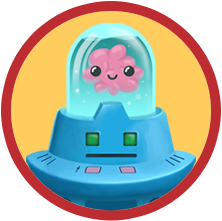
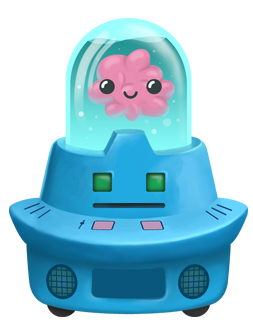 In the UK, about two children in every class in school are likely to have asthma.
In the UK, about two children in every class in school are likely to have asthma. What are the symptoms of asthma?
The most common symptoms are:
- Coughing – this can be worse after exercise or at night
- Wheezing
- Shortness of breath
- Feeling of tightness in the chest – some people describe it as feeling as though an elephant is sitting on their chest
What makes your asthma worse?
Lots of things affect your asthma, and sometimes it is not always possible to find the cause. Different things affect different people. Some of the most common triggers are:
- Pets or furry animals
- Pollen
- Cigarette smoke
- Dust mites
- Colds and viral infections
- The weather
- Certain foods, like milk, eggs, nuts and fish, may cause an attack in some people
- Moulds
- Exercise
What happens during an asthma attack?
During an asthma attack, the airways become swollen, making it harder for air to get in and out of the lungs. It can feel a bit like trying to breathe in and out through a straw. Sometimes extra mucus is produced, which makes it harder to breathe.
In between attacks, breathing can be normal.
How is asthma treated?
There are lots of different treatments for asthma, and your doctor or nurse will help to decide which is the best for you.
There are two main types of medicine that are used – ‘reliever’ medicines that help when you are having an attack and ‘preventer’ medicines that make it less likely that you’ll have an attack. Both are usually given using an inhaler.
If your doctor or nurse has given you a preventer inhaler, it is really important that you carry on taking it even if you feel well. Don’t stop taking it without talking to your doctor or nurse, and ask your parent or carer to order another one before it runs out.
The doctor or nurse will explain how to use your inhaler. It is important to let them know if your inhaler is not helping, or if you are having to use it more than usual.
Asthma and school
If you have asthma, tell your teacher at school. Make sure they know what medicine you are taking, and if you need to use it before doing P.E.
If you have an inhaler, make sure that you always carry it with you or check it is nearby at all times.
Check it is:
- Labelled with your name
- In date
- With you if you go on any trips
- Used in the way you’ve been shown
Take a look at our great video from the Operation Ouch team about asthma here.
Find out more at Asthma UK or Itchy Sneezy Wheezy.
